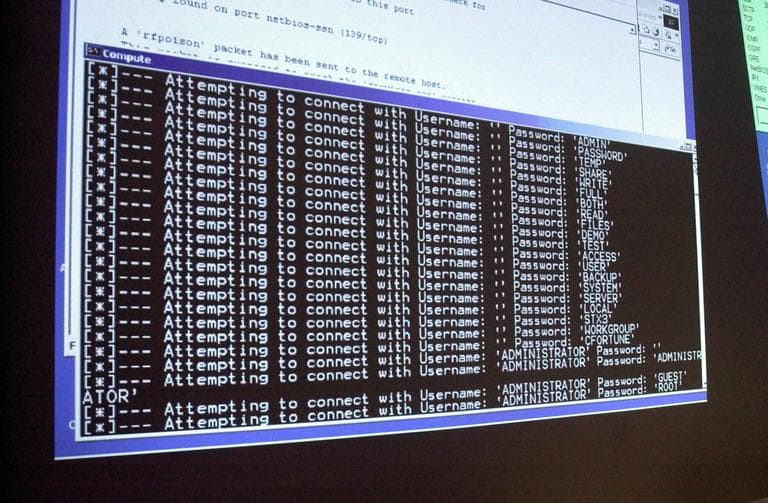Advertisement
Tech Writer Warns: Prepare To Be Hacked!
Resume
Wired magazine senior writer Mat Honan learned the hard way just how vulnerable our online accounts are.
Hackers targeted him, and in a matter of minutes, deleted his entire digital life. Two teenagers used a tactic called social-engineering to trick his email service into resetting his password.
[sidebar title="Mat's Top 3 Password Tips" width="250" align="right"]1. Don't use simple passwords like dictionary words, or words using simple numerical replacements for letters, like p4sswor3
2. Don't reuse passwords for different online accounts.
3. Shop around! If you're setting up an email or financial account, only go with sites that offer 2-step verification. For example, Gmail offers a service that sends a verification to your cell phone any time you log onto your account from another computer.
[/sidebar]
From there, they were able to get into all of his accounts, and eventually wipe the hard drives of all his digital devices. All of his documents - gone. All of his music - poof! Pictures of his child - sucked into a virtual black hole!
It turns out that the hackers were after something that's not even valuable - Honan's three-letter Twitter handle, @mat. Apparently that short handle is desirable in tech circles.
After that encounter, Honan went on a crusade to figure out how he could get hacked so easily, and what the rest of us can do to protect ourselves - if anything.
He told Here & Now that the concept of the password is over - since even the most complex ones can be cracked through software or social-engineering.
Honan is advocating a more sophisticated approach, where companies require multiple verification steps. Like requiring a fingerprint scan and a password.
And Honan said if you haven't been hacked yet, it's only a matter of time.
"It's probably incredibly likely that you have already been hacked and to some extent are not even aware of it," Honan said.
Guest:
This segment aired on December 21, 2012.